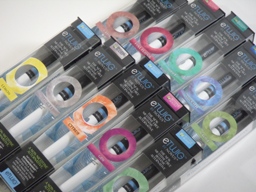Are e-cigarettes blowing smoke?
December 29, 2012 / NewHampshire.com / — New Year’s Day usually means a new start, a chance to reboot and begin healthier habits. And one of the most common health-related resolutions is to quit smoking.
A recent trend in that arena, however, has some medical and cessation experts somewhat concerned. The trend has been in the use of e-cigarettes and other electronic devices that emit vapors to simulate the inhalation of tobacco smoke.
“I’ve had mixed reviews on them, because they are not (U.S. Food and Drug Administration) approved and they are not regulated in any way,” said Kate McNally, program coordinator for the Cheshire Coalition for Tobacco Free Communities. “The results people are going to get will be very random. And so they are not an evidence-based strategy for quitting tobacco, although I know some people have had success, and I’ve had other people say they just tossed it on the shelf and it didn’t help them at all.”
Sold over the counter at most convenience stores, e-cigarettes are nicotine delivery devices that plug into either a wall socket or a computer to charge, rather than being lit with fire. Most of these gadgets look like cigarettes, but instead of producing smoke, they emit what manufacturers call a harmless vapor.
Mixed message
But according to a researcher at Norris Cotton Cancer Center and Dartmouth-Hitchcock pediatrician who studies and teaches ways to prevent kids from using tobacco, there are several problems with using these e-devices.
Echoing the Cheshire Coalition’s McNelly, the researcher, Susanne Tanski, noted that such devices are not regulated by the FDA. And, Tanksi said, the FDA has warned that manufacturers are not to market these devices as smoking cessation devices or as safer than conventional cigarettes since there is no proof of their effectiveness or safety.
“This is like buying vitamins from a street vendor,” Tanski said recently in a Norris Cotton publication. “You really have no way of knowing what you are getting or where it comes from, yet people willingly inhale these unregulated chemicals into their lungs.”
Teresa Brown, cessation specialist for QuitWorks NH, said the studies that have been done indicate that levels of nicotine from e-devices are all over the board, with some cartridges containing a little and others contain a lot. She said that some studies have shown that certain brands of e-cigarettes even have as much as double the nicotine found in other smoking cessation aids.
Some of the devices also have turned up positive for carcinogens.
“There definitely are detectable levels of carcinogens,” Brown said. “There is inconsistency not only with the nicotine but with the carcinogens.”


